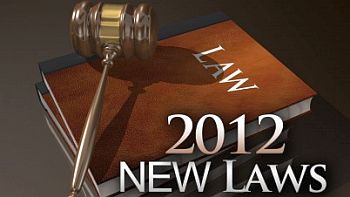 07/02/12 State lawmakers achieved some important legislative victories for Hoosiers this year. While the 2012 session of the General Assembly ended March 10th, most new laws from the session took effect July 1. Here’s a brief update on initiatives aimed at making Indiana a better place to live, work and raise a family:
07/02/12 State lawmakers achieved some important legislative victories for Hoosiers this year. While the 2012 session of the General Assembly ended March 10th, most new laws from the session took effect July 1. Here’s a brief update on initiatives aimed at making Indiana a better place to live, work and raise a family:
| In order to bring high-tech jobs to Indiana, Senate Enrolled Act 302 allows more companies to qualify for locally approved property-tax exemptions on their information technology hardware. Offering this exemption will make Indiana more competitive with neighboring states that don’t tax information technology hardware. |
| The issue of nepotism has hurt Hoosiers’ trust in their local governments, with a 2009 media investigation finding that two-thirds of township trustees had a relative on the township payroll. This year, the General Assembly enacted a statewide solution to this problem by passing House Enrolled Acts 1005 and 1250, which prevent state and local government officials from hiring their relatives as employees. |
| Helping our Hoosier veterans find a place in the workforce is an important way to honor their sacrifices for our country. House Enrolled Act 1116 waives training requirements for certain professional licenses if a veteran has learned and practiced those skills during military service. The new law also requires state colleges and universities to provide credit for classes completed as part of military training. |
| Hoosiers deserve to have an accountable and transparent government. Under House Enrolled Act 1003, government agencies that withhold access to open records or intentionally conduct official business without following public access laws can now face court-imposed fines. |
| Making college affordable for Hoosier students is a growing concern. House Enrolled Act 1220 will help more students graduate on time by giving the Indiana Commission for Higher Education the authority to stop college programs from increasing the number of credits needed to graduate. Hopefully, this will prevent colleges from using these credit increases as “backdoor” tuition hikes. |














